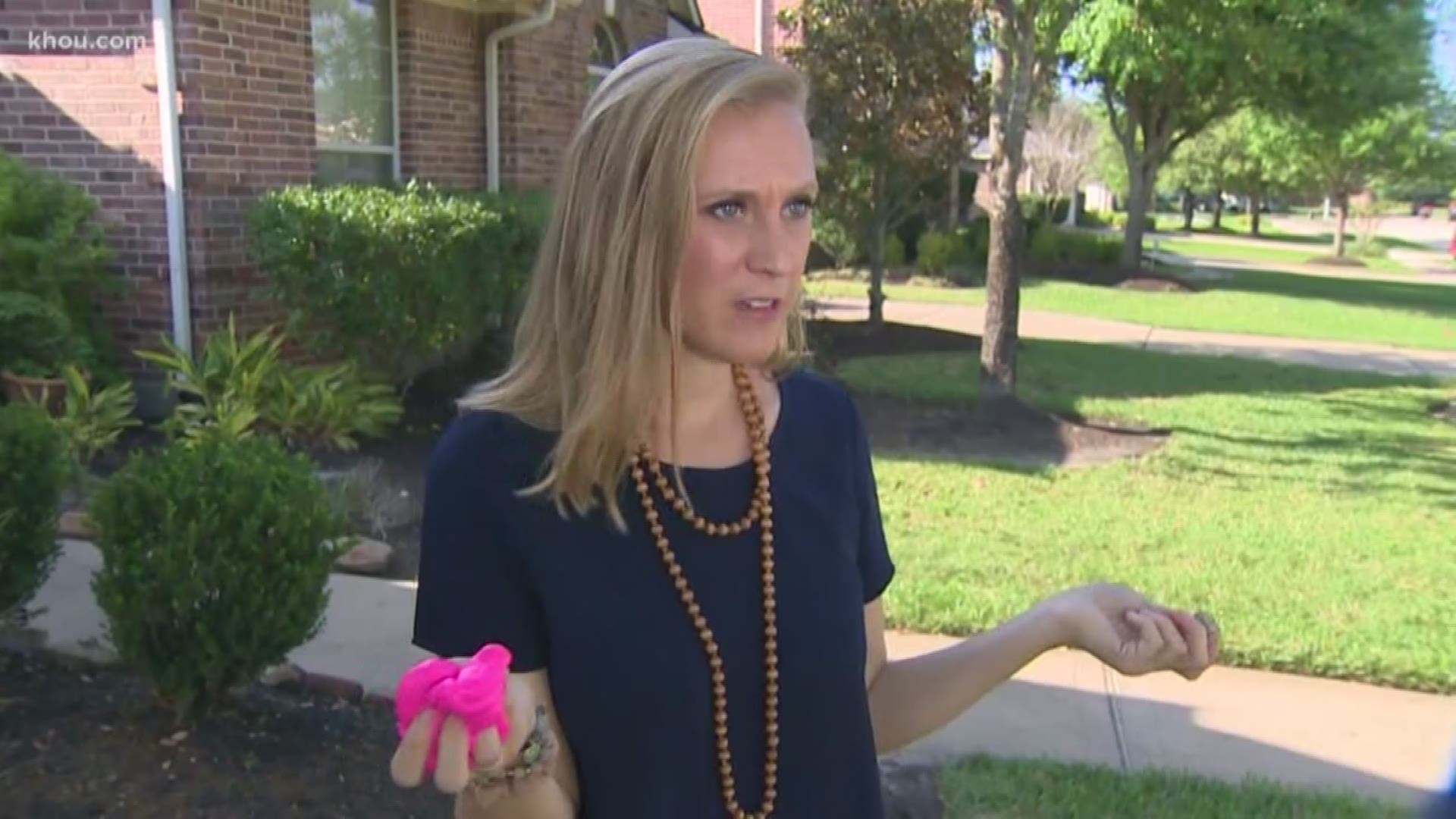HARRIS COUNTY, Texas — The coronavirus isn’t the only health risk our community will have to battle. Experts say the fight for our mental health is just as serious. Counselors across the Houston area are adapting their practices to keep working with clients at home during the stay-at-home order.
“What this is is an activity to help kids understand the coronavirus,” said Brittani Persha, a registered play therapist supervisor, during a demonstration. “The rock is the coronavirus: it’s not changeable, but the play dough – this is what we can control.”
She uses the lesson with children, but with coronavirus looming, she says adults need it, too.
“Then what we tell clients is, let go of the rocks, let go of the things you can’t control.”
For Persha, that means accepting coronavirus forced her to move her practice out of an office and into her home.
“We are 100% online doing virtual counseling," she said.
She’s started posting free resources specifically for COVID-19 on her website—from how to deal with stress to sample daily schedules.
“I definitely have seen a major increase in anxiety," said Persha.
But how do you know when it’s time to get professional help?
“When your anxiety is really starting to impair your life, impair your relationships, your eating habits, your sleep,” she said.
Persha hopes people will use the coronavirus as a chance to focus on what they can control rather than on what they can’t.
“If you take care of it now, you can learn now the tools to get present to make it manageable, the effects won’t be long term.”
For more resources from Brittani Persha Counseling, click here.
Coronavirus symptoms
The symptoms of coronavirus can be similar to the flu or a bad cold. Symptoms include a fever, cough and shortness of breath, according to the Centers for Disease Control. Some patients also have nausea, body aches, headaches and stomach issues. Losing your sense of taste and/or smell can also be an early warning sign.
Most healthy people will have mild symptoms. A study of more than 72,000 patients by the Centers for Disease Control in China showed 80 percent of the cases there were mild.
But infections can cause pneumonia, severe acute respiratory syndrome, kidney failure and even death, according to the World Health Organization. Older people with underlying health conditions are most at risk for becoming seriously ill. However, U.S. experts are seeing a significant number of younger people being hospitalized, including some in ICU.
The CDC believes symptoms may appear anywhere from two to 14 days after being exposed.
Human coronaviruses are usually spread through...
- The air by coughing or sneezing
- Close personal contact, such as touching or shaking hands
- Touching an object or surface with the virus on it, then touching your mouth, nose or eyes before washing your hands.
Help stop the spread of coronavirus
- Stay home when you are sick.
- Eat and sleep separately from your family members
- Use different utensils and dishes
- Cover your cough or sneeze with your arm, not your hand.
- If you use a tissue, throw it in the trash.
- Follow social distancing
Lower your risk
- Wash your hands often with soap and water for at least 20 seconds. If soap and water are not available, use an alcohol-based hand sanitizer.
- Avoid touching your eyes, nose, and mouth with unwashed hands.
- Avoid close contact with people who are sick.
- Clean and disinfect frequently touched objects and surfaces.
- If you are 60 or over and have an underlying health condition such as cardiovascular disease, diabetes or respiratory illnesses like asthma or COPD, the World Health Organization advises you to try to avoid crowds or places where you might interact with people who are sick.
Get complete coverage of the coronavirus by texting 'FACTS' to 713-526-1111.

